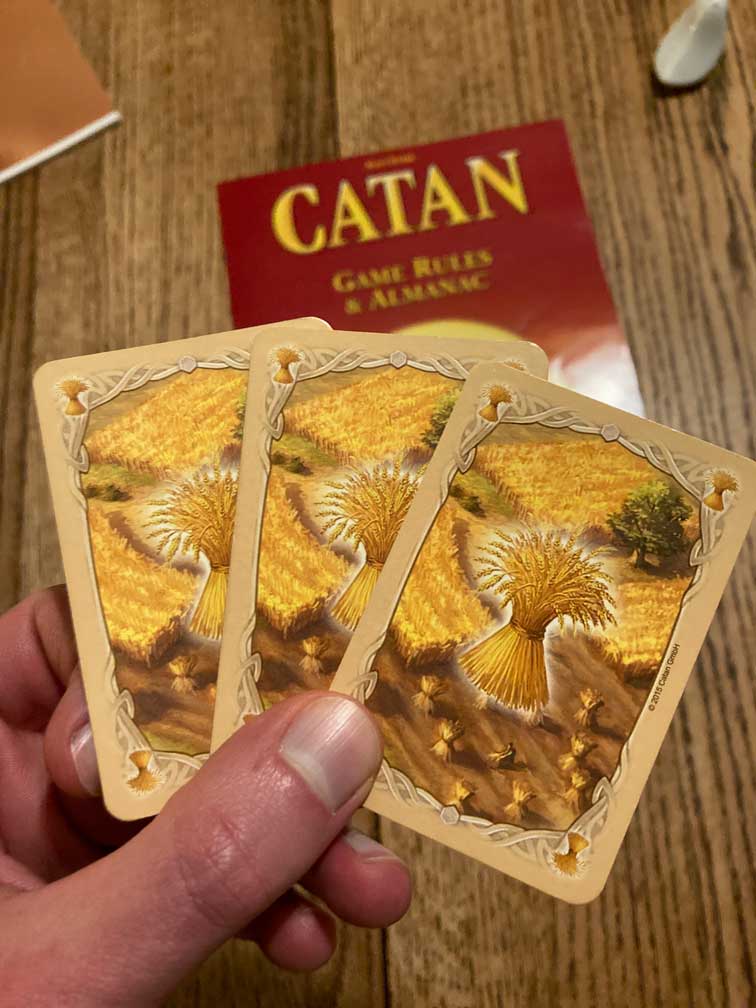I used to make fun of Settlers of Catan. I called it a “wheat trading” game. I played it once years ago and found it about as fun as actually trading agricultural commodities. So I wasn’t super excited when my roommates invited me to play a game of Catan with them recently. But I decided to give it another shot in the interest of broadening my horizons. Tastes change, and maybe I’d like it better this time around. And it turns out I did.

Oh, and apparently it’s just called “Catan” now.
There is quite a bit of wheat trading in Catan though. The idea is that you and a few of your friends are on this island and you’re each starting a sort of market empire, annexing parts of the island that produce different resources by building roads, towns, and cities. The more resources you produce, the more you can buy and trade. The game is won by accruing a certain amount of victory points, which are earned through different achievements in the game (largest army, longest road, etc.).
Catan is really fun though, once you get into the competitive spirit of the game. The play time is comfortable too; you can get through a campaign in probably about an hour. I lost the campaign against my friends, probably because I was more absorbed in screwing them out of their resources than building up my own assets into cities. The resource gathering element of Catan was way more fun than I had remembered it being; trading resources with other players can be an interesting power trip. And the map is built out of hexagonal tiles and changes with every new game, so it feels like a new experience every time you play.
The bumper sticker that came with our box of Catan exclaims that it’s the “greatest game of our generation.” By “our,” I’m assuming they mean millennials since it came out in 1995. I do think this game will be enjoyed best by older audiences. It’s not quite the party game that Codenames is. I think it’s more at home in the Monopoly-Life-Risk canon of table-top games. It’s sophisticated if subdued.
Here’s an interesting coincidental tid-bit for you: for many years my father worked as on-air talent for RFD Illinois, a down-state AM radio station whose audience consisted mainly of farmers. My father’s job? Reading the price fluctuations of agricultural commodities. Including wheat. Go figure.